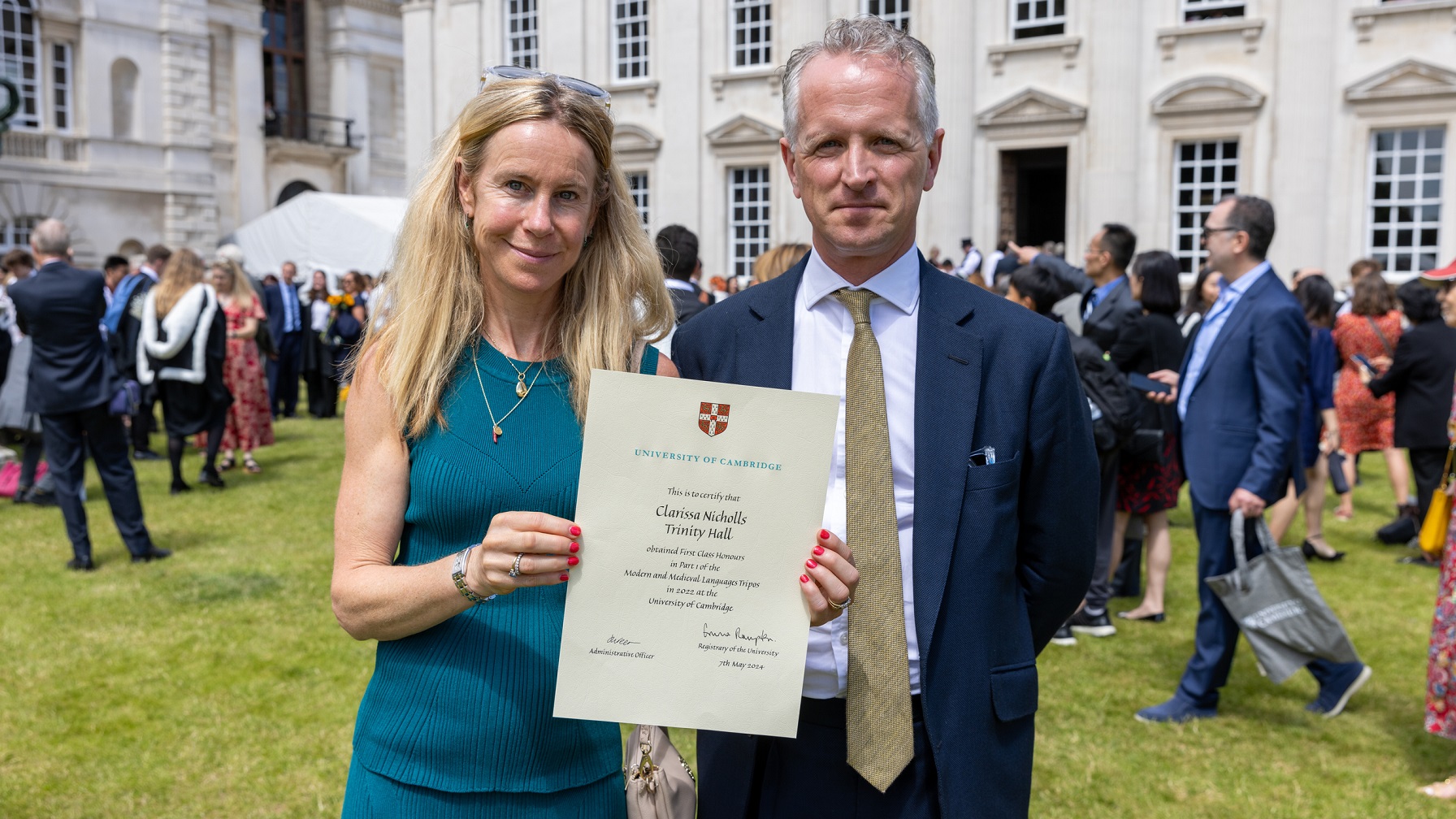Clarissa Nicholls
In May 2023, Clarissa collapsed and died while hiking in France. A keen and active athlete, she had no idea she had arrhythmogenic cardiomyopathy, a condition that can lead to a sudden cardiac arrest. Clarissa was just 20 years old.
Her friends have, in her memory, set up Clarissa’s Campaign for Cambridge Hearts to raise money for heart screenings through ECGs (electrocardiograms).
They have so far rasied more than £50,000. To read more about this see the Thank You Cambridge story on the Univeristy website.
Announcement in Senate House delivered by Dr Cristiano Ristuccia
“Before we start with this year’s General Admissions, I want to say a few words about Clarissa Nicholls who would have been here with us today, had she not left us so much before her time last year. And since this is a Graduation Ceremony. I want to commemorate Clarissa’s many academic achievements.
“It is generally acknowledged by those who taught and supported Clarissa academically while she was at Trinity Hall that she would, in all probability, have been awarded a First in her final year as an MML student if she were here today. I did not have the honour of knowing Clarissa, and as an economist I am hardly qualified to judge her literary and linguistic abilities. Yet, having gone carefully through her academic record in preparation for these words, it was clear to me that Clarissa was excelling in her studies of Italian ab initio*.
“I also noted that, among her many achievements, she seemed particularly good at translating and critiquing one of the best works of literature of that prolific generation of Italian intellectuals that emerged from the wreckage of the Second World War. I am talking about Natalia Ginzburg’s wonderful and utterly engaging Lessico Famigliare or Family Lexicon. Ginzburg was one of the best writers and public intellectuals of that period, and I mention her in this context because, judging from the grades that Clarissa got in her coursework on Ginzburg, it seems clear to me that she must have liked this book very much. And there is no surprise here as Ginzburg seems to personify all the things that Clarissa valued: strenuous support and advocacy for fellow women; sharp critical discourse that engages with the social and political questions of the time; all joined with that love for levity and friendship, not devoid of wit and elegant sarcasm, that seems to reflect Clarissa’s very own attitudes to life and work.
“Today we commemorate and congratulate Clarissa’s academic achievements, we mourn her loss, and we acknowledge her rightful and deserved place, at least in all our thoughts, among her year-group and her fellow 2024 Trinity Hall Graduands.
“DIGNISSIMA DOMINA, DOMINA PROCANCELLARIA ET TOTA ACADEMIA, PRESENTO VOBIS CLARISSA NICHOLLS*.”
*Latin translations:
“ab initio”
Literally “from the beginning” but in an academic context this refers to when students are studying a subject for the first time.
“DIGNISSIMA DOMINA, DOMINA PROCANCELLARIA ET TOTA ACADEMIA, PRESENTO VOBIS CLARISSA NICHOLLS.”
The Latin replicates the beginning of the Latin formula for the Presentation of Graduands at a Congregation for the Conferment of Degrees. The formula is an address to the person awarding the degree and to any member of the University (as in Members of the Regent House) who could in theory have objected to a degree being conferred. In this case the formula is addressed to the Master of Trinity Hall who at General Admissions represents the Vice-Chancellor. The formula reads simply: “Most worthy Lady, Lady Vice-Chancellor, and the University in its entirety, I present to you CLARISSA NICHOLLS”.
